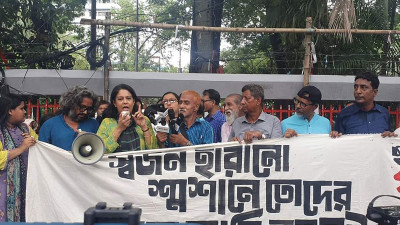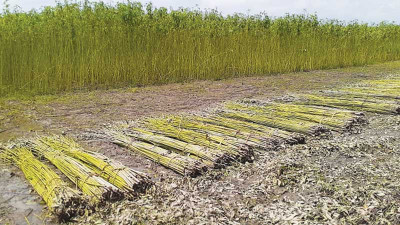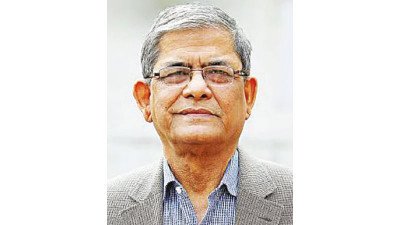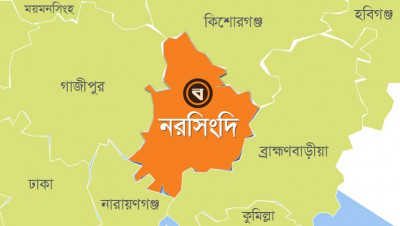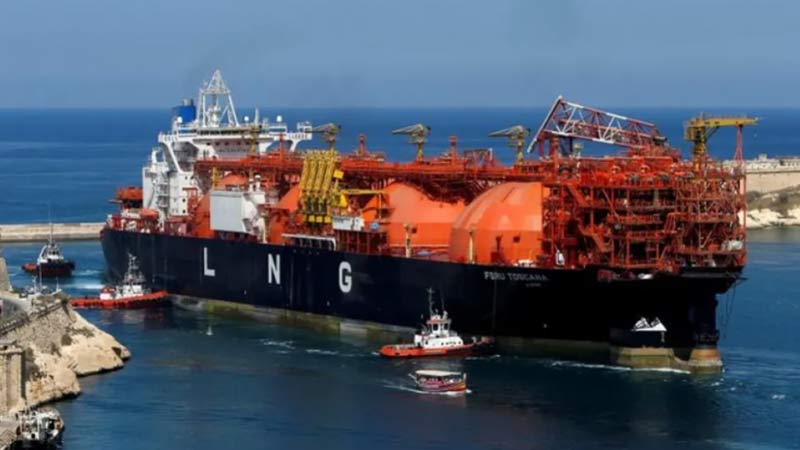 Photo: Reuters
Photo: Reuters Petrobangla sustained a financial loss of TK 18,000 crore in revenue sector in the fiscal year2021-22. Due to the increased price of Liquified Natural Gas (LNG) in international market and to reduce financial pressure, the organization has increased the price of Gas in two phases leading Consumers into much burden.Even the last year witnessed more decline,according to PetroBangla souces. To lessen the financial burden, the price of gas is going to be adjusted to that of international market, the organization told to the Interantianal Monetary Fund (IMF) recently.
The gas reserve of the country is declining gradually. Government chose the option of importing rather emphasizing domestic exploration. Import dependency for gas sector was 24 percent in 2020-21 FY. Government expensed at least an amount of Tk 100,000 crore in last five years for importing around 1 TCF gas. Calculating this, Petrobangla projected that the rate will be 60-70% in 2030-31 FY which will create a serious financial restraint both for the consumers and for Petrobangla.
A meeting between the IMF staff and Petrobangla held at last week where the issue of Petrobangla’s huge amount of losses for selling imported LNG at a low cost has been discussed. IMF asked the body how it will avoid the loss in the upcoming years. They also asked Petronangla to be informed about gas reserve, supply and production and financial security of gas sector. In response, Petrobangla said that they need to adjust gas price with the international market.
Contacted, Petrobangla director (Operation and mine) Engr. Md. Kamruzzaman told The Bonik Barta , LNG importing is a must with the gas from the local fields to ensure continuous gas supply. It will bring some challenges normally. Gas price need to be adjusted with international market to avoid losses in this sector. Considering the value of gas in economics gas price is now very low. Recently we had a discussion with IMF where we provided our plan regarding this.
But people concerned with this sector opine that it is tough for Petrobangla to avoid loss with the adjustment of fuel price according to international market and importing fuel from volatile market. They proposes , it is impossible to get rid of loss after importing fuel from volatile fuel market rather it is imperative to pay more attention on exploration and extraction from local fields and reducing dependency on fossil fuel including of fuel and electricity.
Energy expert and geologist Badrul Imam told The Bonik Barta, "It was supposed that there will be a financial pressure over monitoring gas sector because there was a alarm of this in the master plan of gas sector. Now the financial crisis of Petrobangla is visible due to maintaining the supply management. Determining future is a bit tougher. Energy department is moving towards import dependency though. The only way to escape from this is, emphasizing more on exploration and extraction fuel from our local sources. At least for the sake of future gas dependent electricity and industrial projects, exploration should be operated few times more than previous.”
The department of Energy started to import LNG from 2018 meet the challenges of gas crisis. A total of 11 percent of The Energy department has been importing LNG since 2018 to deal with the gas shortage in the country. Around 11.70 percent gas (113 BCF) of the total gas consumed in the country (1078 BCF) was LNG in the 2018-19 FY. Besides 23 percent of the total gas consumed in the FY 2019-20 , 24 percent in the FY 2020-21 and 28.57 percent in FY 2021-22 was imported LNG. Also 21 percent of the total gas consumed in the six months till December of FY 2022-23 was LNG. The department of Energy has spent at least TK 85 thousand 667 crore on LNG import from FY 2018-19 to FY 2021-22. More than TK 25,000 crore has been estimated for FY 2022-23.
However, Petrobangla couldn’t reduce the losses even after increasing the gas price to handle the massive financial pressure. Now it is trying to meet gas supply management by using gas distribution company fund and gas development fund.
According to Petrobangla’s sector-wise gas tariff, the price of one million cubic feet gas for electricity was Tk 89.48 till September 2018, it increased to Tk 142.15 in June 2022. Besides, the price of gas used in fertilizer factories increased from Tk 76.74 to Tk 453 .7, the price of gas for large industries from Tk 219.74 to Tk 339.24, the gas price for medium industry from Tk 219.74 to Tk 333.57, gas for small industry from Tk 219.74 to Tk 337.82, the price of commercial gas from Tk 482.52 to Tk 754.36 and the price of captive electricity from Tk 272.41 to Tk 453.7.
Since then, the government has increased the price of almost all categories of gas at the consumer level two more times. During this time, the price of gas in public and private power plants increased by 497.6 percent, captive by 87.5 percent, large industries by 150.51 percent, medium industries by 154.66 percent and small and cottage industries by 178.29 percent. Expenditure of consumers has been increased in every sector from electricity to household goods due to repeated price hikes.
To get rid of this situation, economists suggest to reduce dependency on fossil fuels and to increase the use of renewable electricity. They believe that excessive reliance on fossil fuels has threatened the entire energy supply system in the country.
Economist and Director of Policy Research Institute (PRI) Ahsan H Mansur told The Bonik Barta, "Dependency on fossil fuels must be reduced to get out of this situation. The cost of power generation is increasing. We have to move towards renewable energy considering this situation . Industries in particular can now slowly move towards this. At this condition of fuel price volatility in the global market, the government will not be able to handle the situation with subsidies. Instead, govt. can provide subsidies and incentives to the renewable energy sector. A huge amount of energy expenditure can be lessened and the pressure on the dollar can also be modertated by implementing this.
The country consumes more than one trillion cubic feet of natural gas every year. Out of this, the highest, 40 percent of gas is used in electricity, 17 percent in captive, 19 percent in industry, 13 percent in residential and 6 percent in fertilizer factory. In the last few years, these sectors have had to face rationing at various times due to fluctuations in gas demand and supply.
Chairman of Development Studies Department at Dhaka University, Rashed Al Mahmud Titumir told Banik Barta, "The model we are following in the power and energy sector of the country is wrong. Overcapacity in electricity, insufficient gas exploration and import dependency—those issues have put the security of our energy sector at risk. The sector has to give additional subsidies to deal with this risk. The sector is being driven on a wrong model. The consumers of this sector are now the most hostages. To deal with these losses, the price of gas and electricity are being increased several times.
The country's gas sector master plan was developed by Ramble, a Danish engineering and consulting farm. At that time, in a mid-term projection on the demand and supply of gas in Bangladesh, the farm mention that more than 3 billion dollars will have to be spent on importing gas to meet the demand every year from 2021 to 2030.
Regarding this, Ramble recommended that instead of waiting for the investment of international energy companies, if this money is used for gas exploration and development at the local level, the expected benefits will be achieved. Energy experts say that Ramble's recommendations for the implementation of the gas sector's master plan could not be implemented in the last five years. Rather, the projection of import was chosen as the solution to the local gas supply shortage. However, due to price volatility and dollar crisis, Bangladesh can’t import gas from the international energy market in the required level .
Most of these recommendations have not been implemented. Rather, the Energy department had to face a complicated situation while bringing a simple solution to import dependence. Experts believe that if the recommendations were implemented, this critical situation could have been avoided.
The daily demand of gas in the country is about 42 BCF.
27-28 BCF are supplied. Sometimes it comes down to 25-26 BCF when LNG is
reduced. The biggest crisis in gas supply management in the country was in the
first half of 2022 (January-June). At that time, when the price of LNG gets
lofty in the international market, Petrobangla ( Energy Department) stopped
importing the product. After about six months, LNG import started again from
July last year.
Translated by Mehedi Mamun


